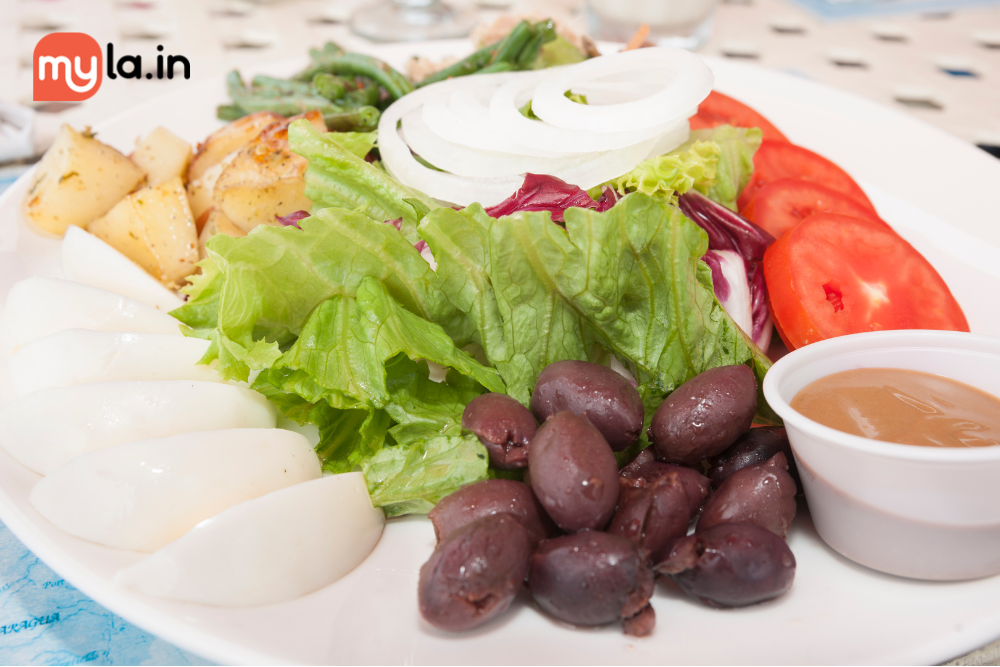In today’s fast-paced world, it’s often easy to underestimate the influence our meals can have on our health. Yet, by making a few simple adjustments, you can transform your daily meals into potent healers that nourish your body and enhance your well-being. Explore some tips to add healing power to everyday meals!
Whether you’re recuperating from an illness or injury, or simply aiming to enhance your overall health, integrating healing foods into your diet can have a significant impact. These foods are packed with nutrients and compounds that bolster your body’s natural healing mechanisms and aid in recovery. Here are some tips to infuse your everyday meals with healing power:
Tips to add healing power to everyday meals
Colorful Vegetables

Incorporate a rainbow of vegetables into your meals. Aim to include a variety of vegetables in each meal, focusing on different colors to ensure a wide range of nutrients. Each color provides different vitamins, minerals, and antioxidants that can support your health. For example:
- Red vegetables like tomatoes and bell peppers are rich in lycopene, which has been linked to a reduced risk of certain cancers and heart disease.
- Orange vegetables like carrots and sweet potatoes are high in beta-carotene, which is converted into vitamin A in the body and is important for eye health.
- Green vegetables like spinach, kale, and broccoli are packed with nutrients like vitamin C, vitamin K, and folate, which are essential for overall health.
Whole Grains

Opt for whole grains like brown rice, quinoa, oats, and whole wheat bread instead of refined grains. Whole grains are rich in fiber, which can help improve digestion, regulate blood sugar levels, and lower cholesterol. They also contain vitamins, minerals, and antioxidants that are beneficial for your health.
Healthy Fats

Include sources of healthy fats in your diet, such as avocados, nuts, seeds, and olive oil. Healthy fats are essential for brain health, hormone production, and the absorption of fat-soluble vitamins like A, D, E, and K. They also help reduce inflammation and support heart health.
Herbs and Spices

Use a variety of herbs and spices in your cooking to add flavor and health benefits to your meals. For example:
- Turmeric contains curcumin, a compound with powerful anti-inflammatory and antioxidant properties.
- Garlic has antibacterial and antiviral properties and may help boost the immune system.
- Ginger can help reduce nausea, inflammation, and muscle pain.
Lean Proteins

Choose lean protein sources like chicken, turkey, fish, beans, lentils, and tofu. Protein is important for building and repairing tissues in the body, and it also helps keep you feeling full and satisfied.
Limit Processed Foods

Try to minimize your intake of processed foods, which are often high in unhealthy fats, sugars, and additives. Instead, focus on whole, nutrient-dense foods that will nourish your body and support your health.
Stay Hydrated

Drink plenty of water throughout the day to stay hydrated. Water is essential for digestion, nutrient absorption, and overall health. You can also hydrate with herbal teas, coconut water, and infused water with fruits and herbs for added flavor.
Mindful Eating

Finally, practice mindful eating by paying attention to your food, savoring each bite, and listening to your body’s hunger and fullness cues. This can help you enjoy your meals more and prevent overeating.
By integrating these healing foods into your diet, you can elevate your everyday meals into potent healers that nurture your health and well-being. Explore various ingredients and recipes to discover what resonates with you, and relish the advantages of a more robust, more vibrant life. Commence incorporating these suggestions into your diet today to relish the benefits of a healthier, more contented you.
